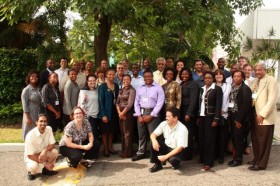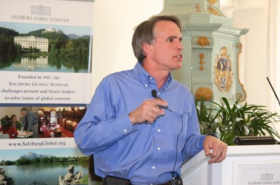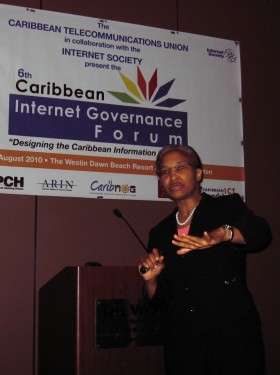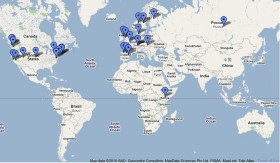IDRC published the following press release about their conference: “Towards a Caribbean Open Institute”, and encouraged participants to share this with our communities. Many thanks to Federico Burone and Fernando Perini from IDRC; to my co-discussion-leaders Kaia Ambrose and Bruce Girard; and especially to the engaged and experienced participants for making this an interesting and potentially important event. See also my previous post on this conference, as well as my presentation slides. The Web Foundation has committed to support open data initiatives around the world. We will talk with IDRC and Caribbean partners in the coming weeks, and will announce another open government data initiative in the coming days. More soon …
Press Release: A Caribbean Initiative will Promote Open Data for Policy Research
(re-produced with permission from IDRC Web site)

(photo by F. Perini)
Canada’s International Development Research Centre (IDRC) brought together international experts and stakeholders in the Caribbean to explore opportunities for strengthening policy-oriented research in the region. The meeting, titled “Towards a Caribbean Open Institute: Data, Communications and Impact” took place June 30 – July 1, 2010 at the Jamaica Pegasus Hotel in Kingston, Jamaica. The meeting was attended by 40 high-level stakeholders in the area of public policy research from across the region. Participants examined international experiences and explored the possibilities of collaborating to drive the process of making more data available online in order to strengthen the collaboration between governments, researchers and the civil society.
Read more




 Web inventor and Web Foundation founder Tim Berners-Lee spoke last week at the Nokia World conference in London (see
Web inventor and Web Foundation founder Tim Berners-Lee spoke last week at the Nokia World conference in London (see 



